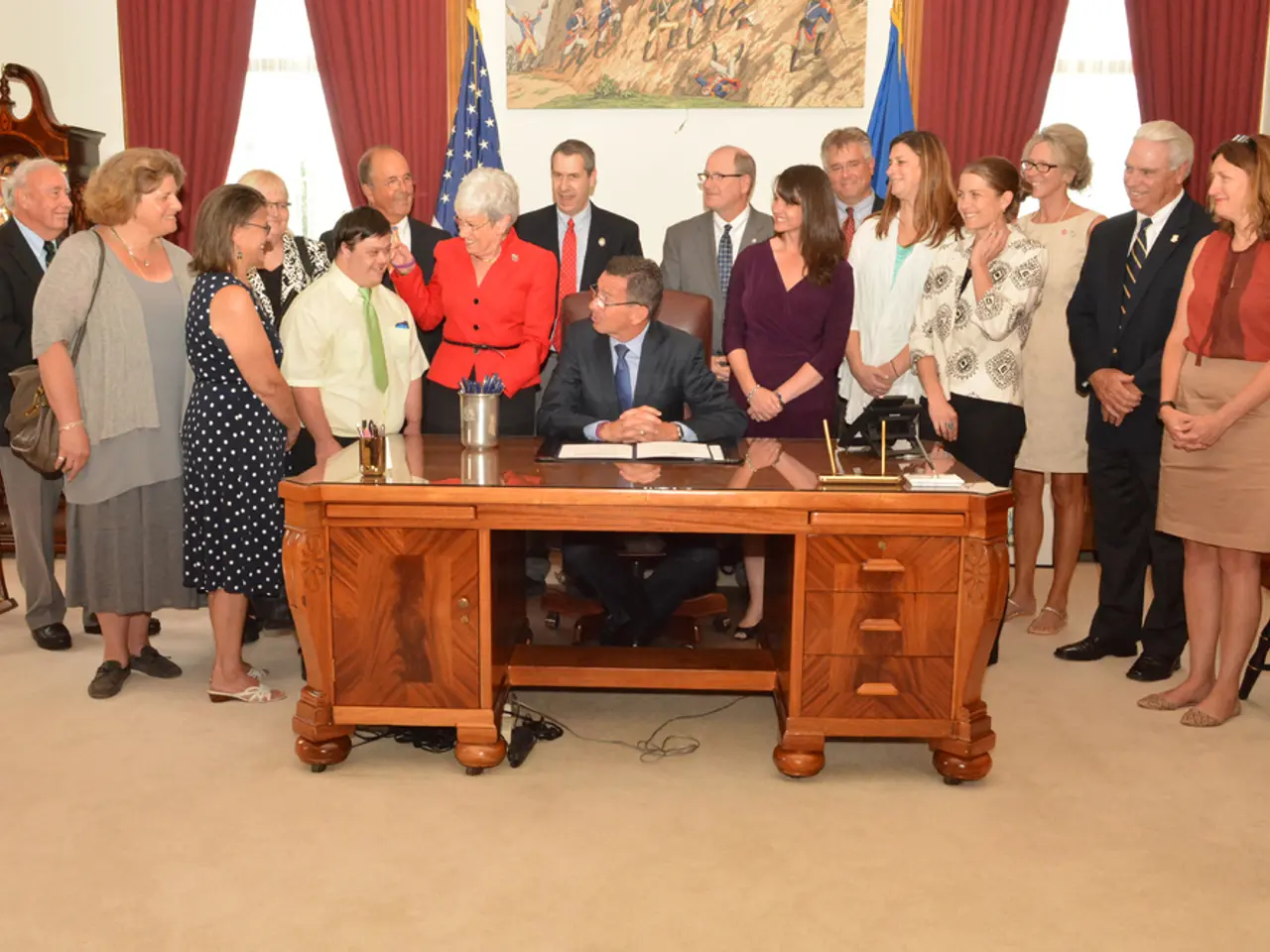Lawsuit filed by the AFD parliamentary faction in Stuttgart over judicial selection rulings is unsuccessful - AfD's Stuttgart parliamentary faction unsuccessful in challenging judges' election
Baden-Württemberg's Constitutional Court Election: No Exclusive Rights for Factions
In a significant ruling, the Constitutional Court of Baden-Württemberg has declared that there is no exclusive proposal and nomination right for any fraction in the State Parliament. This decision comes after the AfD fraction's application was rejected by the court following an organ dispute procedure.
The event took place in Stuttgart, the capital city of Baden-Württemberg. The AfD fraction had proposed a candidate for the Constitutional Court, but did not find a majority. The rejection of their candidate led to the organ dispute procedure.
The process of electing judges to the Constitutional Court by the State Parliament (Landtag) follows a defined parliamentary procedure, but explicit publicly detailed rules about the exact process are limited. Generally, parliamentary bodies determine judicial appointments by majority vote among members or factions, sometimes requiring qualified majorities.
When a judge resigns prematurely, the process to appoint a replacement typically reverts to the parliament, which must hold a new election for that judge’s seat. Disputes over faction rights—such as nomination or voting rights—can arise in cases where a faction’s claim to elect or propose a candidate is challenged by other parties.
The Constitutional Court's decision strengthens the democratic legitimization of a personnel decision by allowing freedom of choice. This ruling is expected to clarify the election process and reduce disputes in the future.
For authoritative and detailed procedural rules, one would need to consult the Baden-Württemberg state constitution (Landesverfassung) or the laws governing the Constitutional Court (Landesverfassungsgerichtsgesetz) and Landtag procedural rules. These documents will provide the specific rules and regulations governing the election of judges to the Constitutional Court in Baden-Württemberg.
Read also:
- Court petitions to reverse established decision on same-sex marriage legalization
- Proposed Standardization of Food Labeling Laws Among Member States by the Commission
- Experimenting with Merz's Germany has stretched into an extended period of time, resembling a numerous three-month duration.
- Moderate discussions scheduled between U.S. President Trump and India's Prime Minister Modi next month, according to recent reports.







